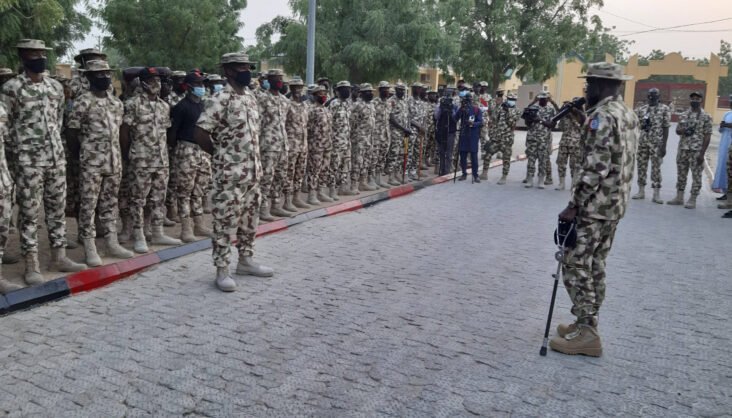[ad_1]
Plateau State has most recently become a location for targeted abductions. Solomon Maren, a PDP member of the House of Representatives from the state, raised the issue of the targeting of traditional rulers and district heads.
The ruler of Panyam, in the Mangu local government area of Plateau State, His Royal Highness Aminu Derwan, was taken from his house by bandits and held for three days before being released earlier this month.
Idris Wase, the Deputy Speaker of the House of Representatives, another Plateau native, said: “Despite the resolutions of the House urging the security agencies to put out formations in some of these areas, so that we will be able to stop these things … nothing has happened. It is like our resolutions are mere statements.”
These kidnappings continue to occur daily, and abductors demand as much as N10m ($23,000) in ransom from villagers already living in abject poverty.
Solomon Maren, a member of the House of Representatives for Plateau state, described the attacks as “systematic, well-coordinated and targeted across the constituency, the state and indeed the country, which is alarming and of grave concern.”
Plateau is not by any means the only affected state.
- From the week of 12 June to 18 June, 52 people were killed in various attacks across the country, a step down from the previous week which numbered over 100.
- On Sunday 19 June, over 30 churchgoers were captured and three killed in attacks on two churches in Kaduna state.
But a source on the ground tells The Africa Report that he doesn’t believe there has been any difference in the rate of incidents in recent weeks. He says that “there have actually been more reports of arrests and releases of detainees this week, but the attacks continue.”
He points out how people released paid ransoms, but the security forces tend to leave this out of the narrative. Soldiers continue to be ambushed and be killed by terrorist forces.
What is the presidency doing?
President Muhammadu Buhari, who has been in power as a democratic head of state since 2015, told Bloomberg that his administration will “leave Nigeria in a far better place than we found it.”
In terms of security, Buhari claims that the military has recovered all the territory Islamist extremist group Boko Haram had captured. However, a March report by the International Crisis Group warned of an offshoot group known as the Islamic State West Africa Province (ISWAP) that is gaining ground in rural areas of northern Borno state and frequently attacking the army. The report also reiterated that all across the country, armed groups continue to carry out mass abductions and killings.
Interestingly, the group that Buhari seems to want to put focus on is Nnamdi Kanu’s southeastern secessionist group the Indigenous People of Biafra (IPOB), who he claims is responsible for oil theft and pipeline vandalism in the region.
The president claims that the group is funded through international financial networks and that the West has provided safety for its leadership, allowing them to broadcast hate speech into the country from abroad. He urges the world to see it as a terrorist organisation.
Is Buhari’s administration being honest?
From the Abuja-Kaduna railway attack earlier this year to the kidnapping of Chibok girls that earned worldwide outrage in 2014, many citizens still remain unaccounted for, although two more Chibok girls were freed earlier this week.
Buhari, while visiting the Kigali Genocide Memorial in Rwanda earlier this month, wrote in the visitors’ book: “…we pray that humanity will never experience this kind of hatred, wickedness and violence to others because of their ethnic background, religion and beliefs.”
What can be said of his own citizens living through a similar experience back in Nigeria due perceived differences based on their background and beliefs?
[ad_2]
Source link
